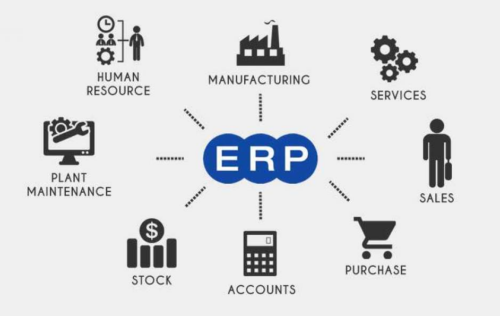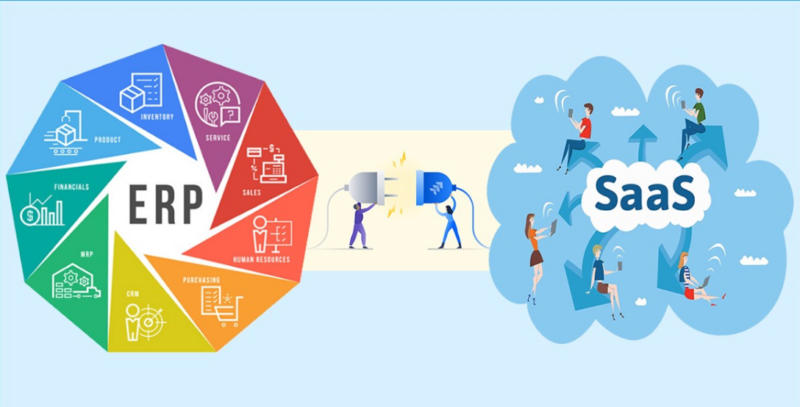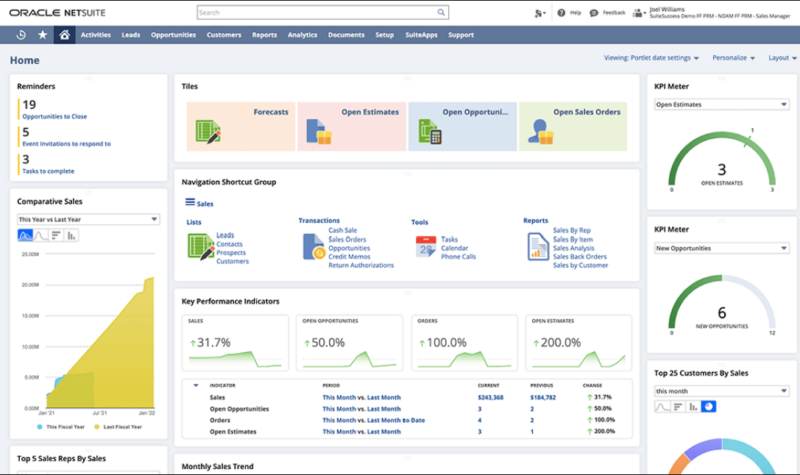Discover the leading ERP systems, streamlining business operations and boosting productivity with our top-rated ERP software recommendations.
In the fast-paced world of business management, staying ahead of the curve is essential for success. Enterprise Resource Planning (ERP) systems have become the backbone of modern businesses, streamlining operations, enhancing productivity, and fostering growth.
As we step into 2023, it’s crucial to explore the top ERP systems that are shaping the future of business management. In this article, we will delve into the world of ERP systems, highlighting their significance and unveiling the leading ERP solutions for the year 2023.
Understanding the Importance of ERP Systems
ERP Systems: A Game-Changer in Business Management
ERP systems have revolutionized the way businesses operate. These integrated software solutions consolidate various functions such as finance, human resources, supply chain, and customer relationship management into a unified platform. The advantages of ERP systems include improved efficiency, data accuracy, and informed decision-making.
– Streamlined Operations
One of the primary benefits of ERP systems is the streamlining of operations. Businesses can manage their core processes more efficiently, reducing redundancy and errors.
In the ever-evolving landscape of business management, efficiency is a paramount goal. Efficient operations not only reduce costs but also enhance productivity and customer satisfaction. This is where ERP systems come into play as powerful tools for streamlining operations.
What are Streamlined Operations?
Streamlined operations refer to the process of optimizing and simplifying various aspects of a business to eliminate redundancies, reduce manual tasks, and enhance overall efficiency. When an organization’s operations are streamlined, it can perform tasks more quickly, accurately, and with fewer resources.
How ERP Systems Contribute to Streamlined Operations
ERP systems act as a central nervous system for a business, connecting and coordinating different departments and functions. Here’s how ERP systems contribute to streamlined operations:
Centralized Data: ERP systems consolidate data from various departments into a single database. This means that instead of searching through multiple systems and spreadsheets, employees can access the information they need from a single source. This reduces the time and effort required to gather data for decision-making.
Automated Workflows: ERP systems automate routine tasks and workflows. For example, they can automate the procurement process, ensuring that orders are placed automatically when inventory reaches a certain level. This not only saves time but also reduces the likelihood of errors.
Real-time Information: With ERP systems, businesses have access to real-time information about their operations. This means that managers can make informed decisions on the spot, rather than relying on outdated data. It also allows for better tracking of key performance indicators (KPIs).
Improved Collaboration: ERP systems promote collaboration among different departments. For example, sales and inventory data can be shared in real-time, allowing sales teams to promise accurate delivery dates to customers based on inventory levels. This leads to better customer satisfaction and reduced backlogs.
Enhanced Reporting: ERP systems offer robust reporting and analytics capabilities. Businesses can generate custom reports to gain insights into various aspects of their operations. This data-driven approach helps identify areas that need improvement and facilitates strategic decision-making.
Cost Reduction: By streamlining operations, ERP systems can help reduce costs. Fewer manual processes mean fewer labor hours, less paper usage, and fewer errors that require correction. Over time, these savings can be substantial.
Real-world Benefits of Streamlined Operations with ERP
Imagine a manufacturing company that implements an ERP system. Previously, each department managed its data independently, resulting in delays, errors, and a lack of visibility into inventory levels. After implementing the ERP system, the company experiences the following benefits:
Orders are processed faster, reducing lead times.
Inventory levels are optimized, reducing carrying costs.
Sales and production teams work together seamlessly, avoiding over-promising to customers.
Reporting and analytics identify bottlenecks in the production process, leading to process improvements.
Customer satisfaction improves due to accurate order tracking and on-time deliveries.
– Enhanced Productivity
ERP systems automate repetitive tasks, freeing up employees to focus on more strategic activities. This boost in productivity can significantly impact a company’s bottom line.
In the realm of business management, productivity is a driving force behind growth, profitability, and overall success. Enhanced productivity is not merely about working harder; it’s about working smarter and more efficiently. Enterprise Resource Planning (ERP) systems are instrumental in achieving this goal, and in this section, we’ll delve into how they contribute to boosting productivity in modern organizations.
What is Enhanced Productivity?
Enhanced productivity refers to the ability of a business to produce more output with the same or fewer resources, including time, labor, and materials. It’s a vital metric that directly impacts an organization’s competitiveness and profitability.
The Role of ERP Systems in Enhancing Productivity
ERP systems play a pivotal role in enhancing productivity across various aspects of an organization. Here’s how they achieve this:
Automation of Repetitive Tasks: ERP systems are adept at automating routine and time-consuming tasks. Whether it’s data entry, order processing, or inventory management, automation reduces the reliance on manual labor. This frees up employees to focus on more strategic, value-added activities.
Efficient Resource Allocation: ERP systems provide real-time insights into resource utilization. By analyzing data on a granular level, organizations can allocate resources more efficiently. For example, they can adjust staffing levels based on demand, minimizing labor costs.
Streamlined Workflows: ERP systems streamline workflows by connecting different departments and processes. Information flows seamlessly from one part of the organization to another, reducing bottlenecks and delays. This ensures that work progresses smoothly and quickly.
Data-Driven Decision-Making: With ERP systems, decision-makers have access to accurate, real-time data. This empowers them to make informed decisions swiftly, eliminating the need for time-consuming data gathering and analysis.
Enhanced Communication: ERP systems often include communication tools that facilitate collaboration among team members. Instant messaging, document sharing, and project management features promote effective communication, further boosting productivity.
Improved Customer Service: Efficient order processing, accurate inventory management, and quick response times contribute to improved customer service. Satisfied customers are more likely to remain loyal and recommend a business to others.
Reduced Errors and Rework: Automation and standardized processes in ERP systems reduce the likelihood of errors. Fewer errors mean less time and effort spent on correcting mistakes or reworking tasks.
Real-world Impact of Enhanced Productivity with ERP
Consider a manufacturing company that adopts an ERP system. Before implementation, they faced challenges like manual data entry errors, production delays, and inefficient resource allocation. After integrating the ERP system, the following improvements are observed:
Order processing time is reduced by 30%.
Inventory levels are optimized, reducing carrying costs by 15%.
Employee productivity increases as they spend less time on data entry and more time on value-added tasks.
Real-time reporting identifies production bottlenecks, leading to a 20% increase in production efficiency.
Customer satisfaction scores rise due to faster order fulfillment.
– Data-Driven Insights
By centralizing data, ERP systems provide real-time insights into business performance. This data-driven approach enables better decision-making and forecasting.
In the modern landscape of business management, the ability to make informed decisions is invaluable. Data-driven insights, powered by Enterprise Resource Planning (ERP) systems, have emerged as a game-changer. In this section, we will delve into what data-driven insights are and how ERP systems leverage them to empower organizations.
What Are Data-Driven Insights?
Data-driven insights refer to the actionable conclusions and strategies that organizations derive from the analysis of data. These insights are not based on gut feelings or assumptions but are grounded in the analysis of real-time and historical data. They provide a clear and evidence-based understanding of business performance, customer behavior, and market trends.
The Role of ERP Systems in Providing Data-Driven Insights
ERP systems are instrumental in generating data-driven insights across various aspects of an organization. Here’s how ERP systems contribute to this process:
Centralized Data Repository: ERP systems aggregate data from different departments and functions into a single, centralized database. This ensures that all stakeholders have access to a consistent and up-to-date source of information.
Real-Time Reporting: ERP systems offer real-time reporting capabilities. Decision-makers can access critical information instantly, allowing them to respond promptly to changing market conditions or operational issues.
Customized Analytics: ERP systems provide tools for customized data analysis. Users can create tailored reports and dashboards that focus on specific key performance indicators (KPIs) or business metrics.
Forecasting and Predictive Analytics: ERP systems leverage historical data to perform forecasting and predictive analytics. This enables organizations to anticipate trends, demand patterns, and potential issues, allowing for proactive decision-making.
Inventory Management: ERP systems offer insights into inventory levels, allowing organizations to optimize stock levels, reduce carrying costs, and ensure products are available when customers need them.
Financial Insights: ERP systems provide deep financial insights by tracking expenses, revenue, and profitability. This information aids in budgeting, financial planning, and identifying cost-saving opportunities.
Customer Behavior Analysis: ERP systems can integrate with customer relationship management (CRM) modules to analyze customer behavior. This helps in tailoring marketing efforts and improving customer engagement.
Real-world Impact of Data-Driven Insights with ERP
Consider a retail chain that utilizes an ERP system. Before implementing ERP, they faced challenges in managing inventory efficiently and understanding customer preferences. After adopting ERP-driven data insights, they experience the following benefits:
- Inventory turnover rate increases by 20% due to optimized stock levels.
- Targeted marketing campaigns lead to a 15% rise in customer engagement and sales.
- Real-time sales data helps identify popular products, allowing for better supply chain management.
- Cost-saving opportunities are identified through detailed financial analysis, resulting in a 10% reduction in operating expenses.
Top ERP Systems of 2023
1. SAP S/4HANA
SAP S/4HANA is a leading ERP solution known for its advanced capabilities. With its in-memory computing technology, it offers real-time analytics and a simplified user interface.
– Oracle Cloud ERP
Oracle Cloud ERP is a cloud-based solution that excels in financial management and reporting. Its scalability makes it suitable for businesses of all sizes.
– Microsoft Dynamics 365
Microsoft Dynamics 365 integrates seamlessly with other Microsoft products. It offers a comprehensive suite of tools for sales, marketing, and customer service.
– NetSuite
NetSuite is a cloud-based ERP system designed for rapid growth. It provides modules for ERP, CRM, and e-commerce, making it a versatile choice.
– Infor CloudSuite
Infor CloudSuite is known for its industry-specific solutions. It tailors ERP systems to meet the unique needs of various sectors.
– Workday
Workday specializes in human capital management. Its ERP system is ideal for organizations looking to optimize their workforce management.
– Epicor ERP
Epicor ERP offers flexibility and scalability, making it suitable for manufacturers and distributors. It focuses on improving supply chain efficiency.
– Acumatica
Acumatica is a cloud-based ERP solution that caters to small and medium-sized businesses. It emphasizes flexibility and adaptability.
Embracing the Future
The Role of AI and Automation
The future of ERP systems lies in the integration of artificial intelligence and automation. These technologies will enhance predictive analytics, automate routine tasks, and provide even deeper insights into business operations.
– Cloud-Based ERP Dominance
Cloud-based ERP systems will continue to dominate the market. They offer scalability, accessibility, and cost-effectiveness, making them an attractive choice for businesses of all sizes.
– Mobile ERP Accessibility
With the increasing reliance on mobile devices, ERP systems will become more accessible through mobile apps. This will empower businesses to make decisions on the go.
FAQs
Q1: What is an ERP system?
An ERP system, or Enterprise Resource Planning system, is a software solution that integrates various business functions into a unified platform, enhancing efficiency and decision-making.
Q2: Why are ERP systems important?
ERP systems are important because they streamline operations, enhance productivity, and provide data-driven insights, ultimately contributing to the success of businesses.
Q3: What are the advantages of cloud-based ERP systems?
Cloud-based ERP systems offer scalability, accessibility, and cost-effectiveness, making them an attractive choice for businesses. They also eliminate the need for on-premises hardware.
Q4: How do AI and automation impact ERP systems?
AI and automation enhance ERP systems by improving predictive analytics, automating routine tasks, and providing deeper insights into business operations.
Q5: Can ERP systems be customized for specific industries?
Yes, many ERP systems offer industry-specific solutions and can be tailored to meet the unique needs of various sectors.
Conclusion
The future of business management is undeniably intertwined with ERP systems. These software solutions have evolved to meet the dynamic demands of modern enterprises.
In 2023, SAP S/4HANA, Oracle Cloud ERP, Microsoft Dynamics 365, NetSuite, Infor CloudSuite, Workday, Epicor ERP, and Acumatica are the top players to watch out for. By embracing these ERP systems and the forthcoming trends in technology, businesses can navigate the complexities of the corporate landscape with confidence.


